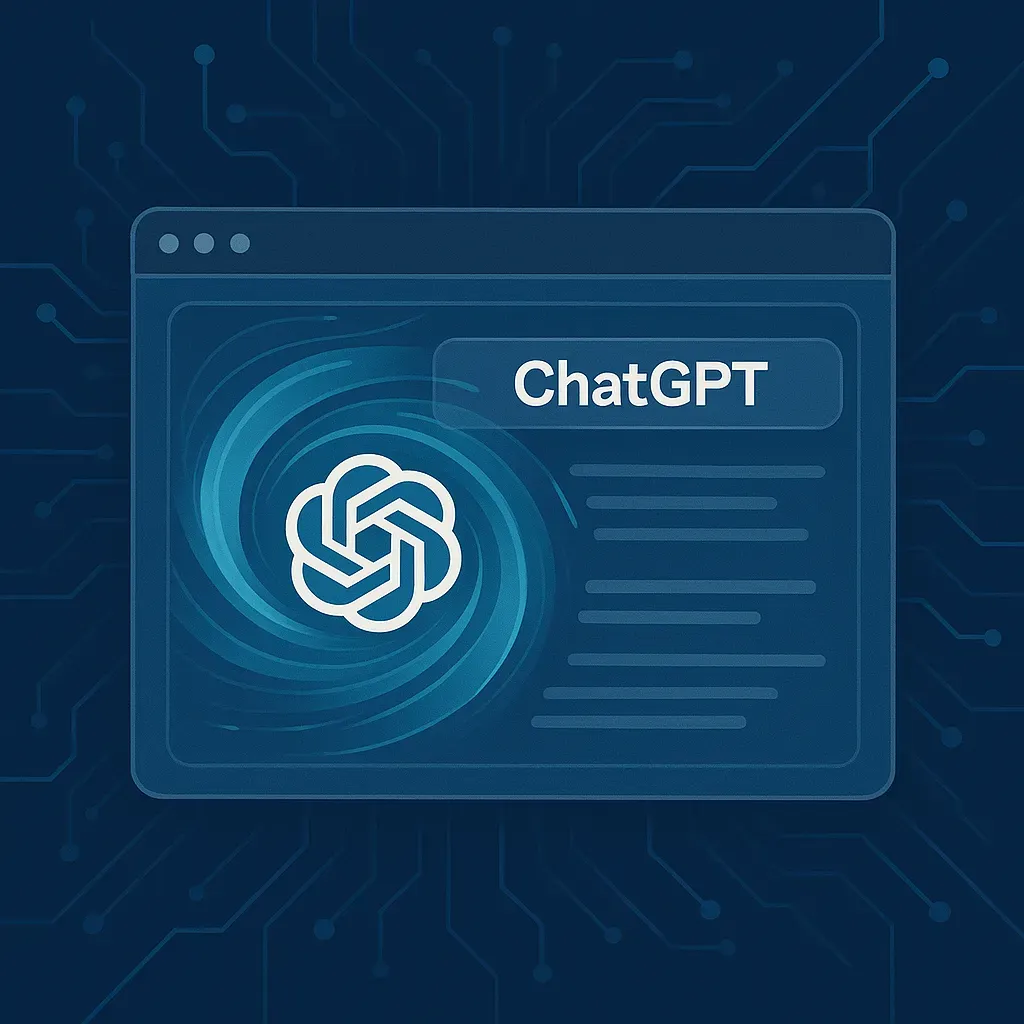OpenAI’s ChatGPT Atlas transforms your browser into an AI assistant with memory, summarization and agent mode. Available on macOS, it remembers pages and performs tasks like booking travel and shopping.
A new kind of browser
OpenAI believes that browsing should be conversational rather than keyword‑based. In its announcement the company called ChatGPT Atlas “a new web browser built with ChatGPT at its core”. Instead of a search bar, Atlas shows a ChatGPT prompt; you can type a question or a URL and the assistant will fetch answers or load the page. This AI‑first approach is part of a broader trend: competing browsers like Perplexity’s Comet, Opera’s Neon and Dia all promise to do things for users rather than just display websites. Vox notes that these browsers summarise articles, fill out forms and even buy groceries.
Key features and how they work
Built‑in ChatGPT and memory
Atlas brings ChatGPT everywhere. When you open a tab you can ask the assistant to summarise the page, compare products or analyse data. A persistent sidebar opens with a click of the Ask ChatGPT button, splitting the screen so the website stays on one side and the chat appears on the other. Atlas remembers what you’ve browsed; its browser memories let ChatGPT recall details from prior pages and surface them later, such as a list of job postings you viewed last week. You control this memory – you can view or archive past pages and deleting your browsing history erases associated memories.
The browser also introduces cursor chat, a feature that lets you highlight sentences in emails or documents and have ChatGPT rewrite them. Atlas can reopen sites you visited earlier and summarise them. These personalised functions are free, but more advanced memory and agentic features require a paid subscription to ChatGPT Plus or Pro.
Agent mode and automation
Perhaps the most transformative feature is agent mode. In this mode ChatGPT performs tasks on your behalf: it can research topics, plan events, book appointments or add grocery items to a shopping cart. During OpenAI’s demo, the agent navigated to the Instacart website, added ingredients for a recipe and prepared an order without leaving the page. Agent mode is available in preview to Plus, Pro and Business subscribers and works only on macOS for now; Windows, iOS and Android versions are coming soon. Lowyat reports that the agent can also help with flight bookings and online shopping. OpenAI emphasises limits: the agent cannot run code, download files or install extensions, and it pauses when visiting sensitive sites such as banks.
Privacy controls and “logged‑out” mode
To address privacy concerns, Atlas gives users control over what ChatGPT sees. You can disable ChatGPT’s visibility on a page, preventing the AI from reading its content or creating memories. Users can also use agent features in a “logged‑out” mode to limit access to personal data. OpenAI says that turning on browser memories is optional and that clearing your browsing history deletes associated memories.
Security and criticism
The promise of an AI‑powered browser also brings new risks. Cybersecurity experts told Fortune (via Yahoo News) that Atlas and other AI browsers could be vulnerable to prompt‑injection attacks. Because AI models follow natural‑language instructions, a malicious web page could hide instructions that cause the agent to reveal sensitive information or perform unwanted actions. Researchers warn that attackers might embed hidden text or machine code in a page so that the AI agent copies passwords or emails without the user realising. George Chalhoub from UCL’s Interaction Centre notes that the main risk is collapsing the boundary between data and instructions; an AI agent could be turned into an attack vector, stealing personal data.
OpenAI’s chief information security officer, Dane Stuckey, said the company has performed extensive red‑teaming and added overlapping guardrails, training models to ignore malicious instructions. The agent also offers a “watch mode” to keep users aware when it operates on sensitive sites. However, Stuckey admitted that prompt injection remains an unsolved frontier problem. Vox’s Adam Clark Estes points out that current agentic features often fail to work faster than manual browsing and that these browsers still feel experimental. Nevertheless, he argues that the AI‑first approach hints at a cleaner, more personalised web.
Competition and industry impact
The launch of Atlas raises the stakes in the browser wars. Reuters notes that the new browser directly challenges Google Chrome’s dominance and could accelerate a shift towards AI‑driven search. By synthesising results into conversational responses, Atlas may reduce users’ reliance on traditional search pages. Alphabet’s shares dipped after the announcement. Analysts told Reuters that integrating chat into a browser is a precursor to selling ads; if OpenAI eventually monetises Atlas, it could threaten Google’s search advertising revenue. Other companies are also integrating AI assistants into browsers. Google has added its Gemini model to Chrome, and Perplexity and Opera offer Comet and Neon with similar agentic features.
Vox explains that free versions of these AI browsers provide basic summarisation, but users must pay around US$20 per month for full agentic capabilities. This subscription model mirrors ChatGPT Plus and suggests that browsing may become a paid service. Despite early glitches, the AI‑first browsing trend could signal a major shift in how people interact with the web.
Conclusion
ChatGPT Atlas combines a conventional browser with an AI assistant that remembers what you read, summarises content and can even act on your behalf. Its launch on macOS heralds a new era of AI‑first browsing and intensifies competition with Google. While its agent mode and memory features promise convenience, experts warn that prompt‑injection attacks and privacy risks need ongoing vigilance. For now, Atlas offers a glimpse of the future: a browser that understands your intent and helps you get things done.




